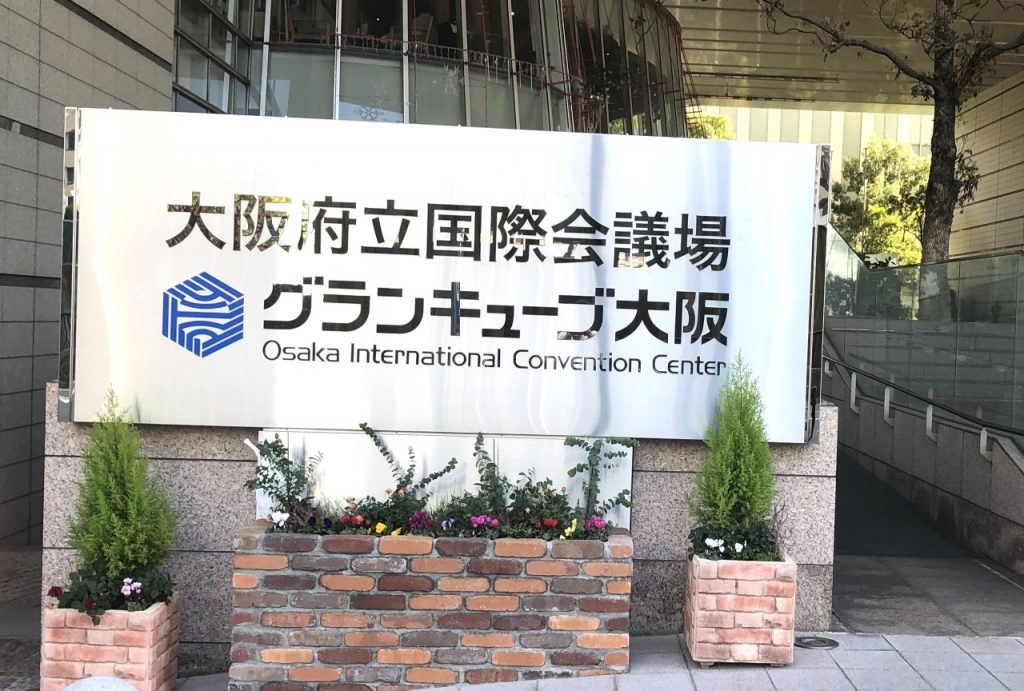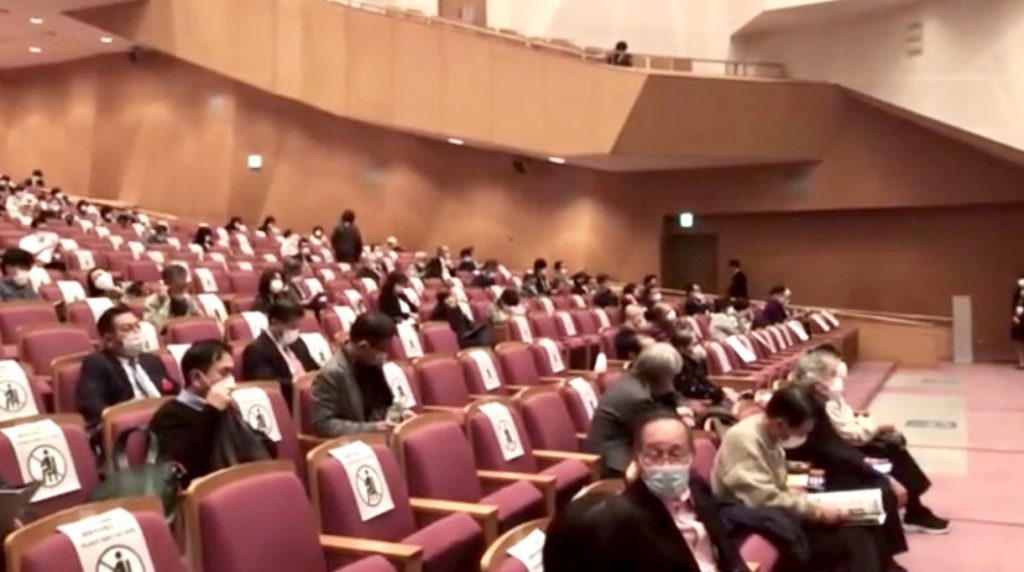







Tamaki Hosokawa
OSAKA: Medical professionals from Japan and worldwide on Sunday, December 5th, gathered on-site and online for the 5th World Eradication Summit 2021 held in Osaka to show their new clinical studies and discuss the next breakthrough treatments for cancer cure.
Attended by medical experts, including Nobel-prize candidates, the summit kicked off with a message from new Japanese Prime Minister Kishida Fumio.
“I would like Taketo Hara, the summit chairman, to help realize my policy with clear vision and strategy when I launch the new capitalism system to support the link between companies and medical institutions. We need to promote internal awareness with the working environment, so cancer patients keep working while getting treatment,” Kishida said.
Governor of Osaka Hirofumi Yoshimura said, “I sincerely would like to give my gratitude for choosing Osaka for this global summit and hope new evidence and studies will contribute to optimizing treatments for patients.”
Osaka is gearing up to host the world exposition in 2025, and hosting this summit this year and the next can further demonstrate its ability to become the center for global communication.
Chairman Hara highlighted the importance of new development of treatment and law revision to expedite the approval of drugs that demonstrate high efficacy due to the high mortality rate among Japanese citizens.
“By constructing a new system in Osaka and the western Japan where we provide cutting-edge cancer treatment, and we can further spread the system to the rest of Japan,” Hara said in his opening remarks.
Professor Mark Ratein from the University of Chicago, who specializes in pharmacology in marketed drugs, said of the trending approach “Less is more,” which indicates lower drug dosage is just enough to be effective and can reduce the expensive drug cost. “Americans with cancer spend 20% on the doctor bills and 80% on their prescribed drugs, said the professor while further adding, “we need to promote this study and become more patient-oriented, not prioritizing the profit of pharmaceutical companies.”
Japan has been promoting accelerating the analysis process of the genome treatment since June as it may help medical professionals to customize the approach. Dr. Yusuke Nakamura, Director of Cancer Precision Medicine Center of Japanese Foundation for cancer research, stated genome analysis could predict the behavior of cancer cells by identifying all the amino sequences of the human proteins. He added that his theory is based on genetic information, a breakthrough for early detection and treatment.
“Challenge we face is that the cost. We are aiming toward reducing down the genetic analysis cost per person from the current a few million yen to as low as 50,000 yen.”
Doctors gave their second opinion to their audience with cancer, or whose loved ones have had cancer. Most questions were regarding pancreatic cancer in an advanced stage, which had already spread to the liver, and even though most did well with the standard chemotherapy, they were looking for better drug treatment to boost their chance for survival.
Pancreatic cancer remains the world’s 7th cancer mortality cause, and is one of the most lethal cancers and is known as “Silent Killer” since patients feel no symptoms until it is too late. “Approved drugs for pancreatic cancer are still very few, and we need to further delve into more clinical trials to develop an effective treatment,” said Dr. Akimasa Nakao, Honorary professor at Nagoya University and a renowned surgeon specializing in pancreatic cancer.
The interesting topic came from Professor Yasuhito Uezono from Jikei University School of Medicine, who said evidence shows that therapeutic Japanese herbal medicine can boost the immune system and mitigate the painful side-effects from chemotherapy.
“The World Cancer Eradication Summit will be held next year in Osaka also, and it is expected that more medical professionals around the world will join on-site.